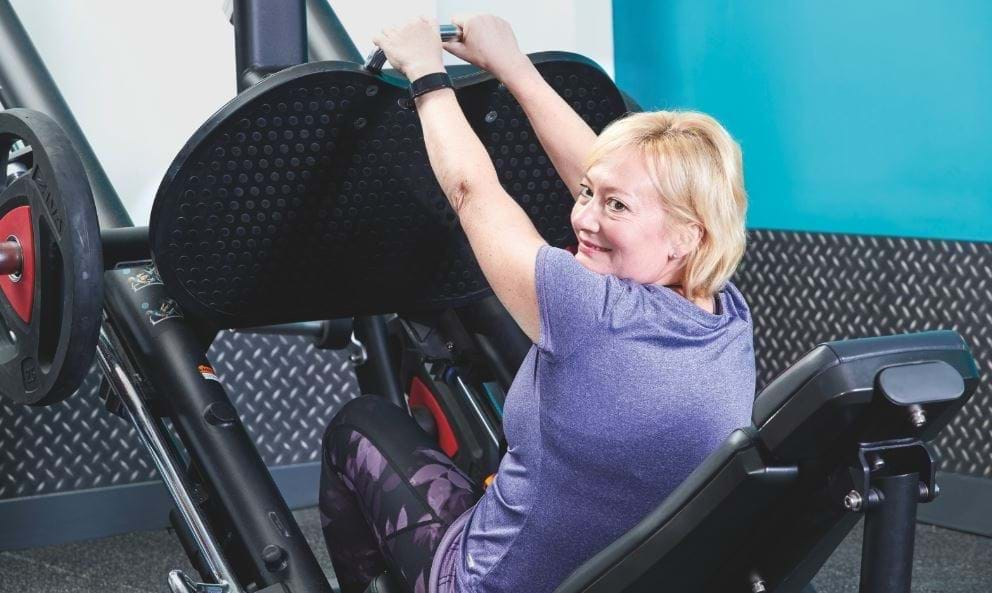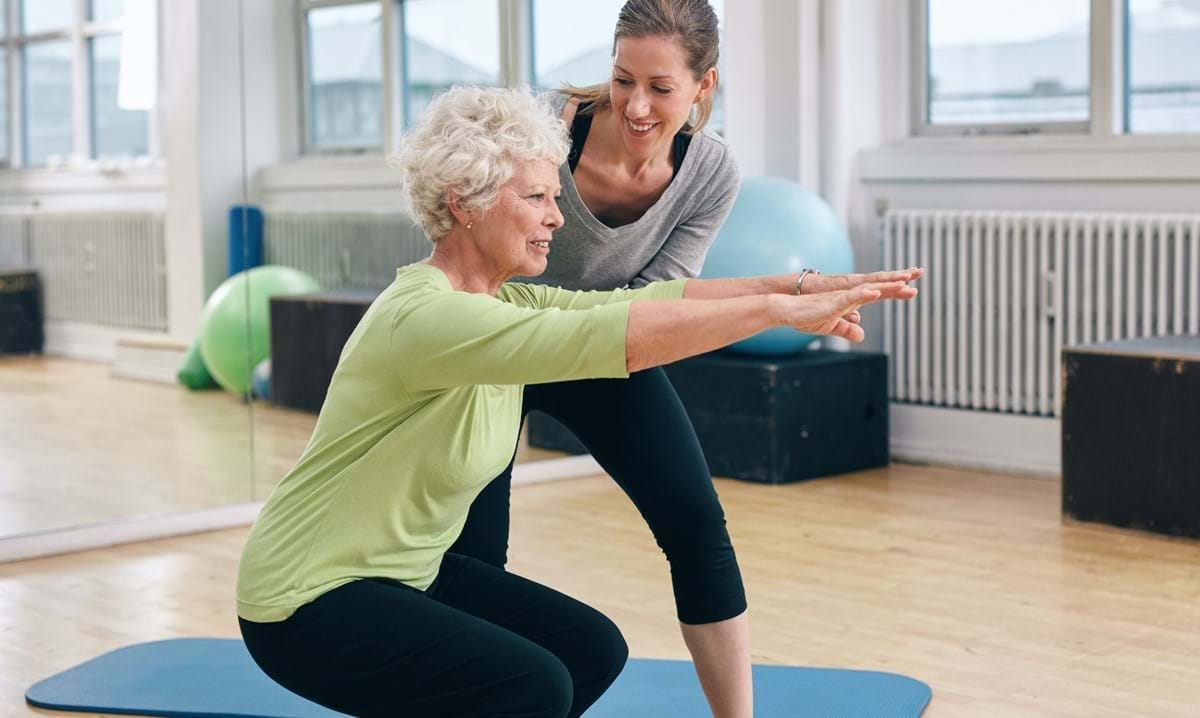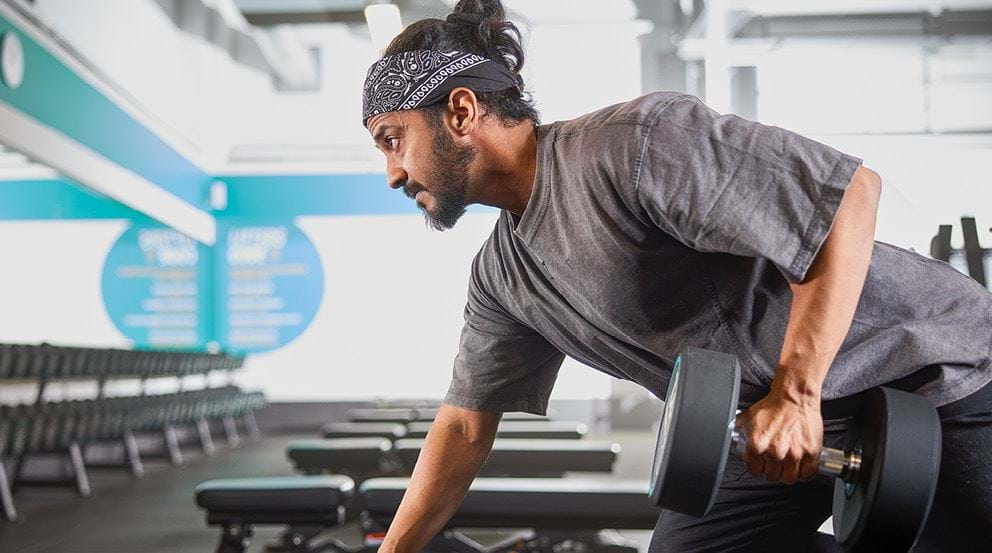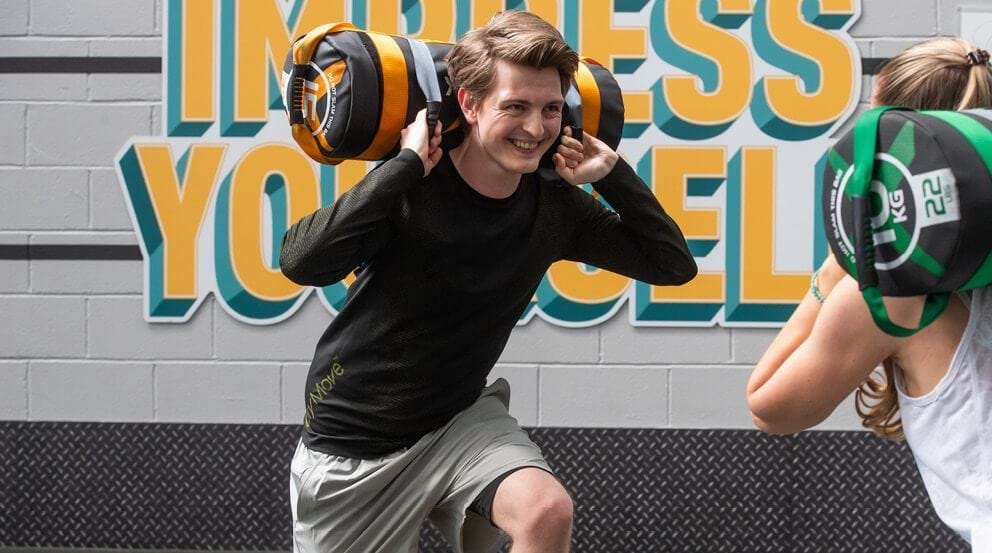Strength Training For Women Over 50

Improving and maintaining body strength is incredibly important as we age, particularly for women over 50 as this is when the menopause typically starts to come into play. Learn more about why, as well as some strength training exercises you can try with this guide from PureGym PT Emma Ford.
Read on or click below to learn more:
What is strength training?
We've explained this in more detail at What Are Strength Training Exercises and Why Do Them, but in a nutshell: strength training is a type of resistance training that involves lifting weights in order to build muscle strength and size.
Why is strength training important for women over 50?
Well, strength training is important for everyone, helping to keep our bodies functioning effectively, maintaining fitness, and reducing the risk of injuries.
However, as we get older, bones get weaker. This is especially true for women going through menopause - it's estimated that on average women lose up to 10% of their bone mass around this time, leading to an increased risk of osteoporosis and potential for fractures. Strength training causes the muscles and tendons to pull and push on the bones, which leads to bone cells becoming stronger and denser. This can help to prevent, and even reverse, bone loss!
It's not just the bones that get weaker too. As we age, we lose muscle mass, leading to a slower metabolism. This means we naturally put on weight quicker, and find it harder to lose. Strength training helps to build muscle and prevent this from happening. Plus, strength training can burn fat and calories, particularly if you're doing full body workouts with compound exercises like squats.
Another benefit of adding strength training (and any exercise) into your routine is that it increases dopamine and serotonin, the happy hormones. This can help to manage menopausal mood swings that are caused by fluctuating hormones.
6 strength training tips for women over 50
If you're a complete beginner to strength training, or it's been years since you last did it, start with bodyweight exercises like squats or planks. This can help you to build up initial strength in your muscles and joints, and work on getting the form right.
You can also start off using resistance bands rather than weights to start with to build up strength and get used to the movements. As the name suggests, these offer a great way to add resistance to your workout, helping to build more strength in a controlled way, without the need for lots of heavy or expensive equipment.
I would recommend strength training 3-4 days per week, doing around 30-60 mins each session, depending on how advanced you are. Rest days are extremely important for allowing your muscles to recover, so don't overdo it.
Don't forget to work the core muscles. The core plays a huge part in balance, stability, and posture! Try to do at least 5-10 mins of ab exercises per week.
Once you're ready to move on to working with weights, start with fixed resistance machines. They are great for beginners as they have a fixed movement pattern, which means you can build up strength and learn the right form with minimal risk of injury. As you become more comfortable with them move on to free weight exercises.
Use slow and controlled reps to get the most out of the movements, avoid using momentum. Focus on the muscles you're working with each exercise, and don't forget to breathe.

10 strength training exercises for women over 50
There is no one right or wrong strength workout. Instead, you should base your workouts on your goals, and how advanced you are.
Beginners, or anyone who isn't able to make it to the gym more than two times consistently each week, doing full body workouts is a great way to make sure you work out your upper body, lower body, and core, twice a week - which is ideal for building muscle.
As you become more advanced, or if you're able to commit to at least three sessions each week, then you might want to break your workouts down to focus on specific body areas with each session. This will allow you to really focus your exercise programme on strengthening those areas and getting maximum value from each workout.
For example, you could do two upper body and two lower body workouts a week, or one full body, one upper body, and one lower body.
Here are 10 of my favourite strength exercises to consider including in your workouts. Complete each for three sets of your required reps, with at least 30-60 seconds rest between sets:
Leg press
By using the leg press machine, you can target your lower body (so your quads, glutes, calves and hamstrings) without relying on any upper body strength. Learn more about how to use the leg press here.
Leg extension
Leg extensions are a true isolation movement, focusing on the quads. These are generally done on the leg extension machine
Seated or lying leg curl
Leg curls are also known as hamstring curls because they're great for strengthening and loosening tight hamstrings. Again, these are best done on the leg curl machine, but you can learn about more variations over on our hamstring curls page.
Walking lunges
You can target pretty much all of your lower body in one go by including lunges in your workout. They also don't require any equipment, although you can incorporate dumbbells for more of a challenge. You can find out more about different styles of lunges here.
Machine chest press
As mentioned earlier, machines are a great way to perfect a movement, and the machine chest press is an excellent example of this. While you can do chest press exercises with dumbbells, the machine will really help you to strengthen and tone your pecs, delts and triceps in a focused way. We cover how to use the chest press machine here.
Barbell bicep curl
Strengthening your biceps will help with all manner of daily strength activities. These can be completed with dumbbells or barbells, depending on your confidence and preference. We cover a range of different bicep curls here.
Assisted dip machine
Head to the dip station in your gym to make the most of the assisted dip machine. You can either focus on chest dips to strengthen your chest, or tricep dips (covered in this arm exercises for women article here) target your arms, or even complete a superset of both, depending on your focus.
Seated row
There's a whole range of potential row movements you can perform, all of which will help to strengthen your back and upper body. Seated rows are best completed at the cable machine, but you can pick from a whole range of row movements here.
Assisted pull-up machine
If you're a beginner, then pull-ups may seem like too much of a challenge, but you can teach your body the right movement and strengthen your muscles in the same way by using the pull-up machine - it supports your body so you can focus on gaining as much value as possible from this fantastic upper body and core exercise. Learn how to use the pull-up machine here.
Overhead press
Another great movement for improving total upper body strength, overhead presses (also referred to as shoulder presses) can be completed with barbells, dumbbells or at machines. We cover a range of different options on our overhead press page.
Discover more inspiration for your next exercise session over on our workouts for women hub. If you'd prefer more guidance for your workouts, then book a session with a PureGym Personal Trainer - they'll be able to support you towards your goals.


